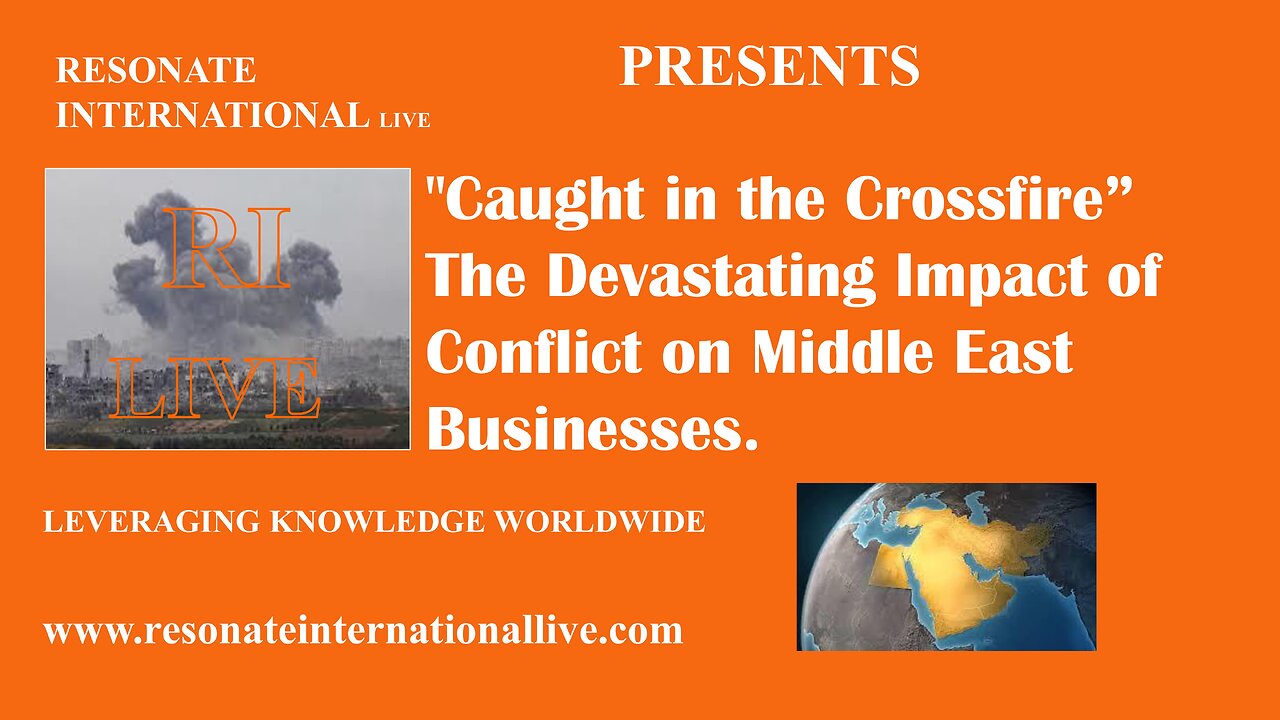Premium Only Content

"Caught in the Crossfire”: The Devastating Impact of Conflict on Middle East Businesses.
The Middle East has long been a linchpin of the global economy, with its vast energy reserves and critical trade routes. However, the region is now facing economic reverberations from the intensifying conflicts post-October 7, 2023. These tensions not only affect the countries directly involved but also have a broader impact on regional and international economic stability. Let’s examine and assess the situation before and after October 2023, review its impact on key players, including Egypt, assess sector-wise damage, and suggest a viable path forward.
The time to act is now. The global community must rally behind a comprehensive peace initiative, while regional leaders must double down on diplomatic and economic reforms. The Abraham Accords should serve as a blueprint for cooperation, and initiatives like the India-Europe rail corridor represent the kind of transformative projects that can secure the region's future.
For those directly involved in the conflict, whether through direct engagement or proxy involvement, the stakes are higher than ever. Further escalation will only result in greater economic and human loss. The future lies in finding common ground, in securing trade routes, in creating new avenues for regional trade, and in forging alliances that prioritize economic development over destruction.
The Middle East holds immense potential for becoming a beacon of innovation, trade, and cooperation. But to unlock this future, the region and its global partners must first address the root causes of conflict and build a roadmap for peace. Only through unity, diplomacy, and shared prosperity can the region emerge from this dark chapter and move toward a brighter, more secure future.
-
 7:00:42
7:00:42
NellieBean
13 hours ago🔴 LIVE - trying some COD maybe Pals later
60.5K1 -
 1:47:46
1:47:46
SpartakusLIVE
10 hours agoThe Master RIZZLER has entered the building, the 95% REJOICE
29.9K2 -
 29:53
29:53
MYLUNCHBREAK CHANNEL PAGE
1 day agoOff Limits to the Public - Pt 1
89.9K112 -
 16:03
16:03
Tundra Tactical
13 hours ago $16.92 earnedNew Age Gun Fudds
130K20 -
 8:22
8:22
Russell Brand
17 hours agoThey want this to happen
211K404 -
 2:06:43
2:06:43
Jewels Jones Live ®
1 day ago2025 STARTS WITH A BANG! | A Political Rendezvous - Ep. 104
118K41 -
 4:20:41
4:20:41
Viss
17 hours ago🔴LIVE - PUBG Duo Dominance Viss w/ Spartakus
93K12 -
 10:15:14
10:15:14
MDGgamin
20 hours ago🔴LIVE-Escape From Tarkov - 1st Saturday of 2025!!!! - #RumbleTakeover
74K2 -
 3:54:19
3:54:19
SpartakusLIVE
16 hours agoPUBG Duos w/ Viss || Tactical Strategy & HARDCORE Gameplay
83.4K1 -
 5:54:54
5:54:54
FRENCHY4185
17 hours agoFRENCHY'S BIRTHDAY BASH !!! THE BIG 40 !!!
91.3K3